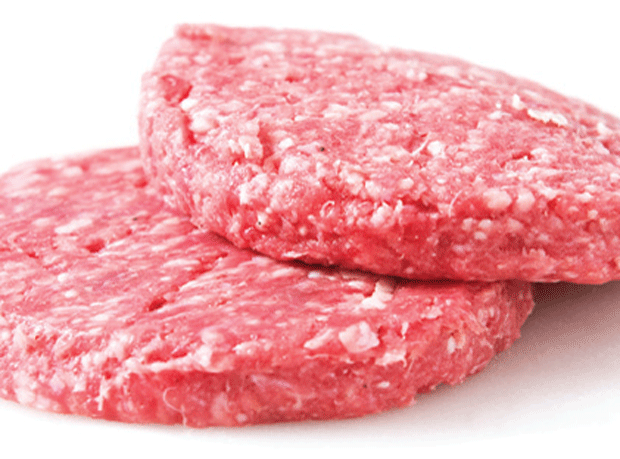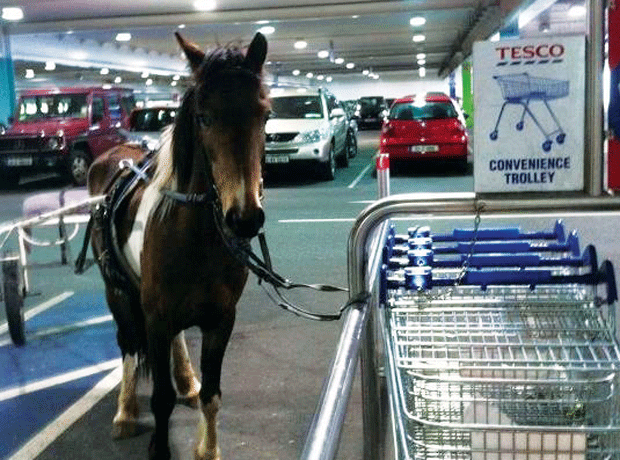It’s a good time to be a DNA testing lab. As the horse contamination scandal gallops into its third week, retailers, suppliers and regulators have been rushing to have meat products tested for unwanted traces of horse.
As we report this week, one UK lab has carried out a staggering 400 horse DNA tests since the scandal broke, and new DNA testing regimes have been mooted by a number of companies and organisations.
It’s no surprise that demand for DNA testing has soared in the aftermath of ‘stablegate’- it was precisely those tests that allowed the Food Safety Authority of Ireland to uncover the horse burger problem.
But the rush to the lab could have far-reaching consequences for the meat industry, and there are many unanswered questions about what role DNA tests should play in a proportionate quality control regime, what the tests can and can’t do, and who is going to bear the costs of increased testing.
Already, there is a sense of nervousness among meat processors that they will end up lumbered with huge additional costs as retailers demand new DNA testing regimes. “More extensive use of DNA tests is inevitable - at least for a while - but we have to be careful about being drawn into widespread testing because there are costs involved and there may not be a clear consumer benefit,” warns one processing source.
DNA analysis isn’t a cheap fix. Tests typically cost about £100 and, depending on how homogeneous the meat is, individual batches may require multiple tests to ensure they are free from rogue DNA.
Then there’s the question of what to test for. You only find what you look for with DNA tests - it isn’t possible to send a burger to a lab and demand to be told all the different species’ DNA in it. Even checking more generically for anything non-bovine in a beef product isn’t feasible, says Mike Birch, quality manager at Genon Laboratories. “That is too broad - you wouldn’t be able to verify such a test,” he says.
Clearly, horse is top of everyone’s agenda at the moment, but more widespread horse DNA testing isn’t going to protect anyone if the source of the next contamination scandal is crocodile, elk or badger. And although the one Tesco burger containing 29.1% horse DNA is the subject of the most head-scratching, it is trace amounts that have the potential to have the biggest long-term impact.
Given traces of DNA can find themselves in products through numerous routes - not all of them necessarily the result of foul play or poor practices - retailers and suppliers could be left with an awkward problem: as products can’t realistically be tested for every imaginable type of animal DNA, what purity claims can they legitimately make? Who will be brave enough to say a product definitely doesn’t contain unwanted DNA if a single test may reveal minute traces, prompting the recall of millions of products and a damaged reputation?
Horse meat scandal: key developments this week
Burger King drops Silvercrest Foods as burger supplier: the chain said the move was “voluntary and precautionary”.
No horse found in new tests at Liffey Meats: the tests were carried out by the Irish Department of Agriculture on products made at Liffey between 10 and 16 January. All came back negative.
FSA says consumer interest key priority: that was the message from CEO Catherine Brown during Tuesday’s board meeting. She also stressed the importance of collaboration across government, devolved nations and between the UK and Ireland.
Allergy-style warnings?
One retailer says he is worried meat products may ultimately have to carry labels akin to allergy warnings, advising of traces of other species. “We are surrounded by a sea of DNA - if you take it to the ultimate conclusion, you end up at nut allergy level and will have to add a warning that a product ‘may contain DNA from every species on the planet’,” he adds.
“DNA testing technology has the potential to challenge what you can reasonably declare about your products,” agrees the processing source.
Provided there isn’t a food safety problem with another species, one way of using DNA tests without causing panic every time 0.1% of something is found would be to introduce tolerance levels similar to those already in place for GM organisms. But this option, too, is fraught with potential problems, which raise questions about what DNA testing can and can’t do, how methodologies differ from lab to lab, and how reliable the end results are.
The FSAI survey specified very precisely how much horse DNA was found in each sample - 29.1% in one burger, for example, and 0.3% in another. The Irish regulator has been clear it is confident in its results and had them double-checked, but DNA experts are surprisingly divided on how sound such exact numbers are.
Whereas Birch says precise quantification is perfectly possible with real-time polymerase chain reaction (PCR) - a DNA test methodology long used to test for and quantify GM organisms - Andreas Kalchschmid of Genetic ID in Germany is not so sure.
Yes, PCR is well established as a means of reliably quantifying GMOs, he says, “but the method there is different from the one you would use to quantify meat, even though both are real-time PCR”. Genetic ID wouldn’t give clients the kind of precise figures found in the FSAI survey and also finds the idea of tolerance levels for meat products problematic, Kalchschmid says. “We’d be able to produce results like that - it’s all a question of interpretation - but we wouldn’t do it because it’s not reliable.”
This is echoed by a source at another lab, who warns “semi-quantification” - where labs give a rough idea of how much DNA is in a sample through the use of indicative bands - is more realistic than precise quantities. That’s not to say someone may not have found a credible method for precisely quantifying meat DNA, Kalchschmid concedes, but he urges anyone tempted to commission tests to ask tough questions about reliability, such as ISO 17025 accreditation.
Different methodologies and varying degrees of reliability are just some of the key issues the meat industry will have to get to grips with quickly. The past two weeks have shown that DNA tests are crowd pleasers, and retailers, suppliers and regulators may find it difficult to withstand calls for more widespread testing. The issue is working out how they can be used meaningfully.
As one processor says: “I don’t doubt there’s a place for DNA testing in the supply chain, but I don’t think we - as an industry - have really understood where that is yet.”
















No comments yet